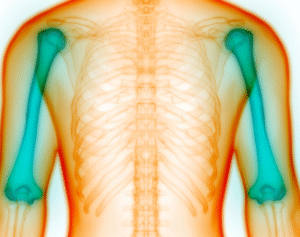“Fibromyalgia Recovery: Exploring the Possibility of Full Remission”
Understanding Fibromyalgia and the Concept of Recovery
Fibromyalgia is a chronic condition characterized by widespread musculoskeletal pain, fatigue, sleep disturbances, and cognitive difficulties. The exact cause remains unknown, and while there is no universally accepted cure, many individuals seek ways to manage and potentially overcome the condition.
Medical Perspectives on Fibromyalgia Recovery
Medical professionals often emphasize that fibromyalgia is a long-term condition with symptoms that can fluctuate over time. While complete recovery is not guaranteed, some patients experience significant improvements or periods of remission. Treatment plans typically focus on symptom management through medications, physical therapy, and lifestyle modifications.
Personal Accounts of Improvement and Remission
Numerous individuals have shared their journeys toward improved health and, in some cases, remission from fibromyalgia symptoms. These accounts often highlight the importance of personalized treatment plans, including dietary changes, regular exercise, stress management, and alternative therapies. While these stories provide hope, it’s essential to recognize that experiences vary, and what works for one person may not work for another.
The Role of Lifestyle Modifications
Lifestyle changes play a crucial role in managing fibromyalgia symptoms. Incorporating regular low-impact exercise, such as walking or swimming, can improve physical function and reduce pain. Stress reduction techniques, including mindfulness and meditation, may alleviate symptom severity. Adequate sleep, a balanced diet, and avoiding known triggers are also vital components of a comprehensive management plan.
Exploring Alternative Therapies
Some patients find relief through alternative therapies like acupuncture, massage therapy, and chiropractic care. While scientific evidence varies regarding the efficacy of these treatments, they may offer additional support when integrated into a broader treatment strategy. It’s important to consult with healthcare providers before initiating any alternative therapies to ensure they complement existing treatments.
Conclusion
While a definitive cure for fibromyalgia remains elusive, many individuals achieve significant symptom relief and improved quality of life through comprehensive treatment approaches. Personalized plans that combine medical interventions, lifestyle modifications, and alternative therapies offer the best chance for managing the condition effectively. Ongoing research continues to explore new avenues for treatment, providing hope for those affected by fibromyalgia.
Frequently Asked Questions
1. Is complete recovery from fibromyalgia possible?
Complete recovery varies among individuals. While some experience significant improvement or remission, others manage symptoms through ongoing treatment.
2. What are common treatments for fibromyalgia?
Treatments include medications, physical therapy, exercise, stress management, and alternative therapies tailored to individual needs.
3. Can lifestyle changes impact fibromyalgia symptoms?
Yes, regular exercise, a balanced diet, adequate sleep, and stress reduction can positively affect symptom management.
4. Are alternative therapies effective for fibromyalgia?
Some patients find relief through therapies like acupuncture and massage, but effectiveness varies, and professional consultation is advised.
5. How important is a personalized treatment plan?
Personalized plans address individual symptoms and responses to treatment, increasing the likelihood of effective management.
6. What role does mental health play in fibromyalgia?
Mental health is integral, as stress and emotional well-being can influence symptom severity and overall quality of life.



